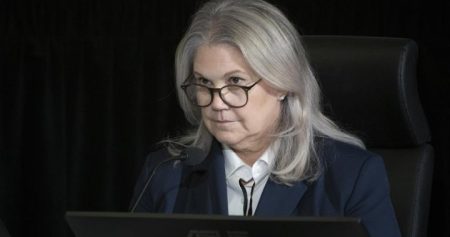Saskatchewan’s Coal-Fired Future: A Clash Between Economic Realities and Climate Goals
Saskatchewan, mirroring Alberta’s recent move, is charting a course towards increased reliance on coal-fired power plants for its future energy needs, a decision that starkly contrasts with the federal government’s commitment to phasing out coal by 2030. This controversial strategy has ignited debate, pitting the economic interests of coal-dependent communities against the urgent need for climate action. While the federal government emphasizes the importance of transitioning to cleaner energy sources, Saskatchewan’s government champions the economic benefits and energy security offered by coal, especially for communities like Estevan, whose livelihood is intertwined with the coal industry. This clash of perspectives highlights the complex challenge of balancing economic realities with environmental concerns in the pursuit of a sustainable energy future.
Estevan, a city whose history and economy are deeply rooted in coal mining, views the renewed focus on coal power as a lifeline. Mayor Tony Sernick welcomes the provincial government’s plan, emphasizing the significant economic benefits that coal provides to the community. The potential closure of coal-fired plants under federal regulations posed a dire threat to Estevan’s economy, with the loss of thousands of jobs and the risk of becoming a "ghost town." Sernick argues that the existing regulations were premature, creating an energy supply gap without viable alternatives in place. He draws parallels to historical energy transitions, emphasizing the need for a reliable baseline power source while the necessary infrastructure for alternative energy is developed. This perspective underscores the economic reliance of communities like Estevan on coal and the challenges of transitioning to a new energy landscape without causing significant economic hardship.
Premier Scott Moe’s announcement to extend the lifespan of coal-fired plants reflects the province’s commitment to affordable and reliable energy, prioritizing the economic well-being of Saskatchewan families. This decision aligns with Alberta’s recent lifting of a coal-mining moratorium, signaling a broader trend in some provinces to prioritize resource development and energy security over strict adherence to federal climate targets. Moe’s assertion that existing federal regulations on coal are unconstitutional further underscores the province’s determination to chart its own course on energy policy, emphasizing provincial jurisdiction over resource management. This stance sets the stage for a potential jurisdictional battle with the federal government over energy policy and the balance between provincial interests and national climate goals.
The Saskatchewan government’s rationale for continuing to rely on coal centers on the need for a stable energy supply during the transition to alternative sources like nuclear power. They argue that coal provides a reliable and affordable baseload power option while the infrastructure for nuclear and other renewables is being developed. This argument highlights the perceived gap between the ambition of federal climate targets and the practical realities of transitioning to a new energy paradigm. Saskatchewan’s emphasis on energy security reflects a concern that premature closure of coal plants could jeopardize the province’s ability to meet its energy demands, particularly during periods of peak demand or when renewable sources are unavailable. This perspective underscores the challenges of managing the transition to a cleaner energy future while ensuring a reliable and affordable energy supply for consumers and businesses.
Saskatchewan’s plan to extend the use of conventional coal, which lacks carbon capture technology, significantly undermines federal efforts to reduce greenhouse gas emissions and achieve climate goals. The federal government’s 2030 coal phase-out deadline was a key component of Canada’s commitment to combatting climate change, and Saskatchewan’s defiance of this deadline poses a significant obstacle to achieving national emissions reduction targets. This conflict highlights the tension between provincial autonomy and national climate policy, raising questions about the effectiveness of federal regulations in the face of provincial resistance. The lack of carbon capture measures in Saskatchewan’s coal-fired plants further exacerbates the environmental impact, contributing to air pollution and greenhouse gas emissions.
The timing of Saskatchewan’s announcement, just days before the federal Minister of Energy and Natural Resources is set to unveil clean energy initiatives and support for the mining sector, underscores the diverging priorities between the federal and provincial governments on energy policy. The federal government’s focus on clean innovation and the transition to a low-carbon economy stands in stark contrast to Saskatchewan’s emphasis on utilizing existing fossil fuel resources to ensure energy security and economic prosperity. This difference in approach highlights the complex challenge of coordinating energy policy across different levels of government and the need for greater collaboration to achieve a sustainable energy future. The upcoming federal announcements will likely further illuminate the differing visions for Canada’s energy future and the potential for conflict between federal and provincial governments on this critical issue.










